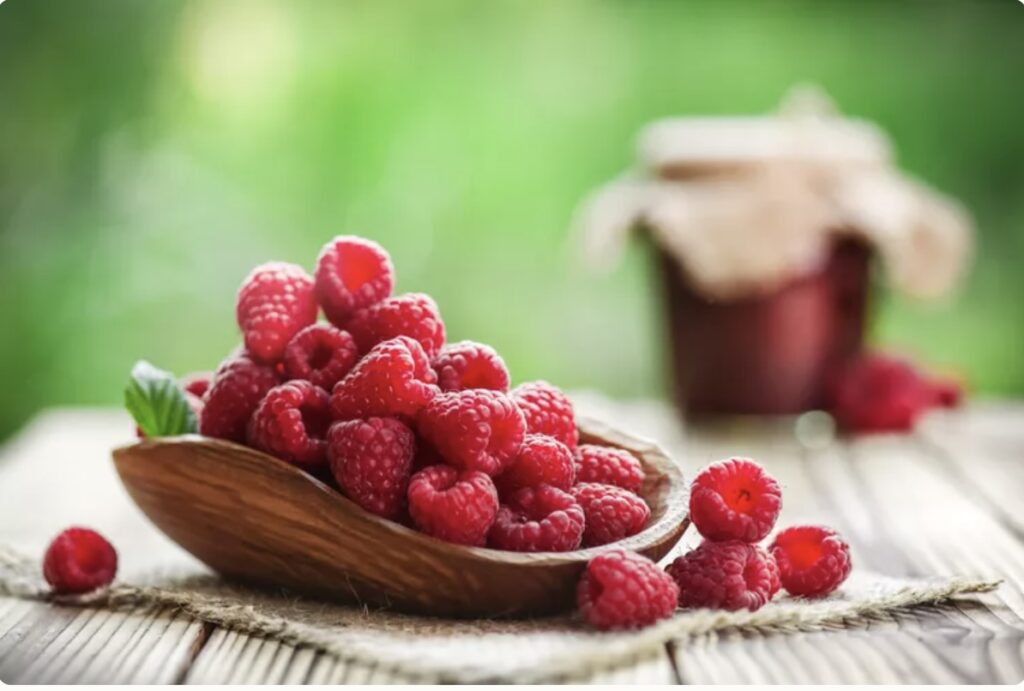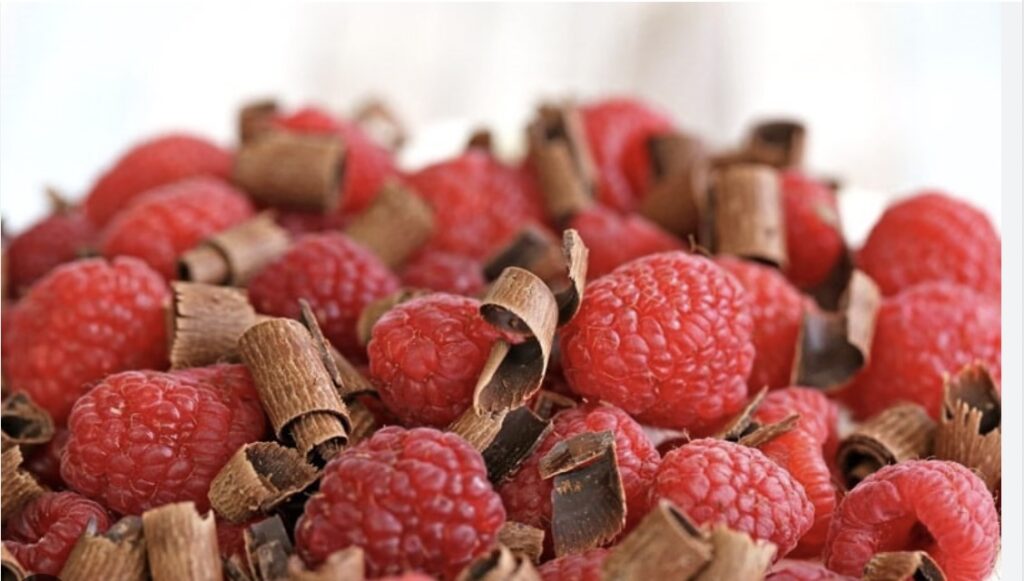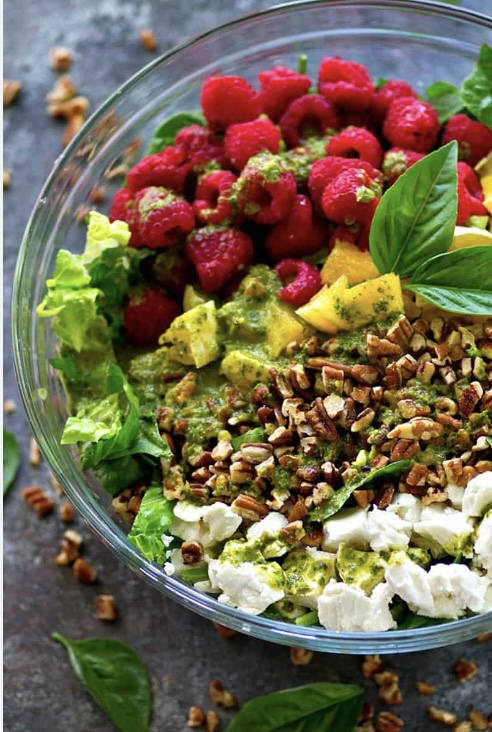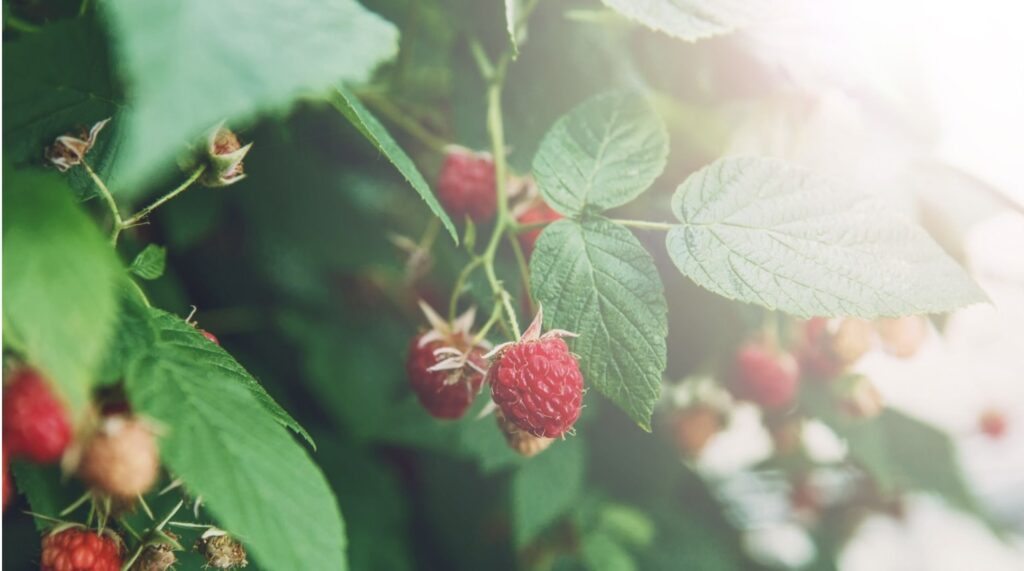Raspberries: A Sweet, Tart & Versatile Fruit Treat With Amazing Health Benefits

Raspberries – Another amazing food I discussed with renowned health journalist, Daryl Austin, in his USA Today column. One of the tastiest and most popular fruits, raspberries earn $432 million in sales in the U.S. – and they’re virtually everyone’s favorite fruit, Daryl said in USA Today on July 31. They are certainly my favorite!
Raspberries’ intense sweet, tart, and juicy flavor literally bursts in your mouth. Their complex flavor profile makes them versatile in either savory or sweet recipes. I throw them in salads, and add them to my yogurt, and oatmeal. For me, the most delicious way to eat raspberries is right off the bush, or locally from my Farmers Market. When they’re not in season, I buy them frozen.
My favorite dessert for guests is fresh raspberries with dark chocolate shavings. It’s an elegant and delicious way of keeping your guests happier and healthier.
Raspberries, and their close relative blackberries, are two of the most nutritious fruits on the planet. Containing 91% water, one cup of raspberries is only 64 calories, with a whopping 8 grams of fiber, a rare fiber to calorie ratio – which means they fill you up with very few calories. You can eat them to your heart’s content. In fact, the more you eat, the better!
Most of the phytochemicals in raspberries contribute to their color. The riper and redder they are, the more nutrients, antioxidants, and anti-inflammatories they contain. On a raspberry bush, some berries are redder than others. It’s because those more intensely colored berries experienced more stress than the other berries on the same bush. A plant’s phytochemical level is increased by stress. For instance, when a berry is exposed to more sun, disease, and bugs, they must synthesize more phytochemicals to protect themselves (which is why organic ones have slightly more phytochemicals – they aren’t protected by pesticides).
Those phytochemicals, when concentrated intensifies their color, flavor, and scent. They are mostly anthocyanins (purple), which help protect against cardiovascular diseases and neurodegenerative diseases such as Alzheimer’s, MS, vascular dementia, and Huntington disease, mainly through their antioxidant and anti-inflammatory properties.
Ellagitannins not only help reduce cardiovascular diseases, and neurodegenerative syndromes (listed above), they help prevent cancer. They uniquely improve your gut’s microbiome which has profound effects on your health.
In fact, the nutritional value of raspberries is vast. Rather than just turn on healthy genes, raspberries will also turn down unhealthy genes. They “modulate” or “affect” 119 genes in healthy ways, turning on healthy genes and turning down unhealthy genes in ways that have profound effects improving your health, increasing longevity by improving your immune system and reducing the incidence of not only the chronic metabolic syndrome (a cluster of conditions occurring together, which increase your risk for diabetes, stroke and heart disease), but also acute infections like viruses and others.













